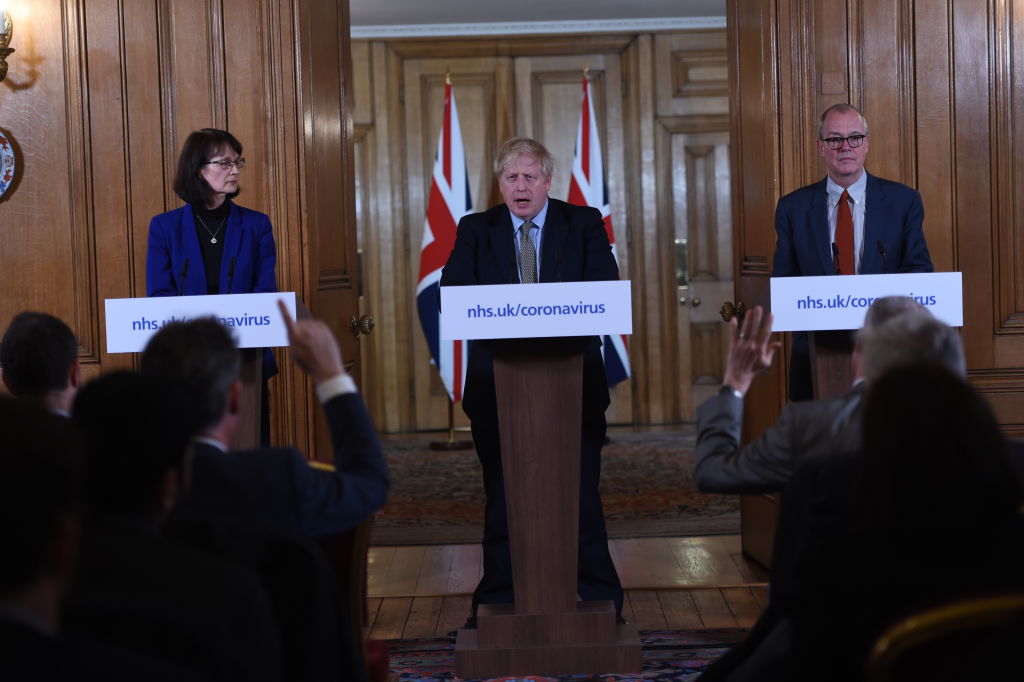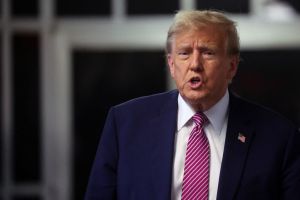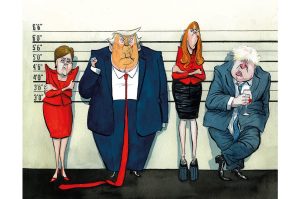For some people, it isn’t enough that we have locked down our daily lives. They want us to lock down our brains, too. Raise so much as a peep of criticism about the shutdown of society in response to COVID-19 and you will be raged against. And the cry is always the same: ‘Are you an expert? No. So shut the hell up.’
Only experts are allowed to speak at the moment, apparently. The rest of us — us lowly, non-expert plebs — must simply sit at home and await our instructions from on high. Those daily coronavirus news briefings feel, at times, like sermons from the mount. It is there, often from the mouths of people none of us ever voted for, that we discover how we must conduct our everyday lives and how long we will remain under house arrest. The experts are hardly staging a coup: they’re being invited to that podium by politicians. When asked, they admit doubt: the figures could be way out, they say. But if the figures are open to question the policies, apparently, are not. And that’s the danger.
Parliament has gone AWOL — the wrong decision, in my view — and even the Cabinet is no longer able to meet, at least not in the flesh, given that Boris Johnson, Matt Hancock and who knows who else is down with the virus. So a very serious question emerges: who rules Britain? The answer should worry anyone who believes in democracy and liberty.
The UK has become a bio-technocracy, a nation in which the fate of millions is being decided by biomedical experts, epidemiologists and people who are good at graphs. Their word has become gospel. Their expertise lies in science, but how to respond to that science? That’s for politicians to decide — and democracies to question.
There was something a little chilling about Dr Jenny Harries’ decree that the lockdown could last between three and six months (and I say this as someone who likes Dr Harries). An unavoidable question flickers across your mind: from where did Dr Harries get the moral authority to make this decision? Which of us granted her the right to determine how the entire nation must live for the foreseeable future? What happens if a couple of million of people disagree with her?
This is not facetious. I find it alarming how passive the British public has become in such a short period of time. We have been decommissioned. Sent home from work, locked away, and given one role and one role only: to follow the instructions of people who have more letters after their names than we do.
Nobody, except a few cranks, denies that COVID-19 is a serious health challenge. It poses a threat to the wellbeing of elderly and medically vulnerable people in particular. But the way our society has chosen to respond to COVID-19 — by bringing to a standstill political, social and economic life — is a serious health challenge too. Potentially a worse one. Crashing the economy, making vast numbers of people unemployed, and forcing people to stay in their homes for months on end could have a catastrophic impact on our lives and our health. And one we should be questioning.
COVID-19 attacks the body; the COVID-19 shutdown attacks the body politic. Democracy has been paused, liberty has been temporarily dispensed with, and the citizenry has been reduced to cowed recipients of doom-laden news or strict moral direction from our betters. Yes, many of us are volunteering and are keen to help out in our communities. But many others can’t (or won’t) do that. The end result is that millions of people are now little more than passive imbibers of rules from on high. This strikes me as being incredibly bad, almost immeasurably bad, for the democratic and economic health of the nation.
Some people are relishing the rule of the experts. The Observer says the COVID-19 crisis has exposed ‘the dangers of populism’, especially its ‘rejection of evidence and experts’. ‘The experts are back in fashion’, says columnist John Harris. Comic and famous Remainer Stewart Lee captures the chattering classes’ almost religious worship of experts when he says they have emerged ‘blinking from the hidden priest holes of the academic institutions that sheltered them during the public book-burnings of the Brexit campaign, waving their statistics and their strategies like prayer flags’.
In short — and haven’t we heard this a million times before? — Brexit was a result of elevating the rash impulses of the ill-educated masses over the cool expertise of the knowledgeable set. And now, courtesy of COVID-19, courtesy of actual disease and death, the balance is being rightfully shifted: the experts are on top again and the ‘pub bores’ (as Lee refers to the throng) are locked in their homes, awaiting instruction, bowing to the ‘prayer flags’ of the clever people.
Here’s the thing. Firstly, it is a myth that people turned against experts. The vast majority of us hugely appreciate the role that expertise plays in our society. Whether it is medical, technological or constitutional expertise, there is absolutely a role for incredibly bright, well-versed people to advise politicians and the rest of us about matters at hand. What people really questioned was the politicization of expertise, the use of expert knowledge to circumvent public discussion and force policy through without real debate.
And that brings us to the second thing: the severe limitations to expert rule. Yes, experts have a great deal to tell us about COVID-19 and its potential spread and impact. But experts are not gods. They make mistakes. The evidence for COVID-19’s nature is still patchy. Experts disagree. Some think shutting down society is the best way to tackle this virus; others, such as David L. Katz at the Yale Griffin prevention center in the US, think shutting down society could prove to be a greater disaster than the virus itself.
And that’s why we need political and moral judgement, alongside expertise. Experts can give us their predictions and their models but then it is down to society itself to decide on the best course of action. To decide if we quarantine everyone or only the vulnerable; to decide if crashing the economy is too high a price to pay for stopping a virus; to decide if people on lockdown should be allowed to exercise once a day or three times a day. These are democratic questions, requiring debate and judgment. No expert should have the right to make these decisions on behalf of the teeming millions.
So we actually need more debate, not less. Everyone’s opinion and judgment to be thrown into the mix. All those ‘nobodies’ who don’t even have PhDs and may never have been to university — let’s not leave them at home awaiting news on their own futures; let’s engage them in a massive democratic debate about how we think this virus should be tackled and when we think the lockdown should end.
This article was originally published onThe Spectato
r’s UK website.


















